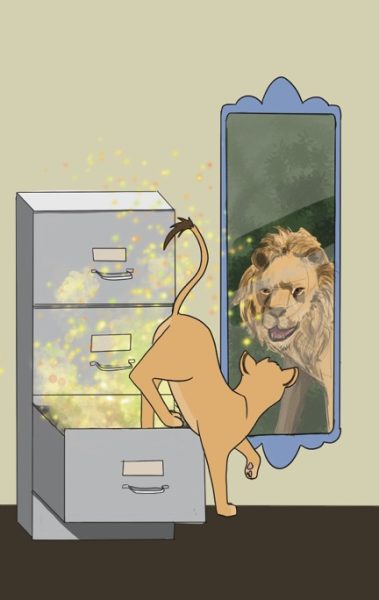Johnson-Sensei: In Memoriam
November 10, 2022
“über Gott und die Welt reden”
(to talk of God and the world)
Hitomi Kosaka Johnson, born on Dec. 14, 1955, was a friend, professor, scholar, teacher and akin to a grandmother away from home. She fell ill to metastasized stomach cancer and passed away from it on Sept. 27, 2022. In her beautiful and brilliant 66 years of life, Johnson-sensei made the world an infinitely more beautiful and caring place. She brought joy to everyone who knew her and cared so very much for not just her students, but also her friends, family and everyone she met. She is survived by her father, Nobuo Kosaka; her sister, Akemi Nagai; husband, Rick Johnson and son, Cedric Johnson.
Johnson-sensei was one of the most caring and thoughtful professors at Whitman. She always noticed when her students were feeling unwell or unhappy. During my freshman year, I was one of the students whom she took note of. I was severely depressed and lonely on Whitman’s campus, and she did all she could to care for me and try to make my life here at Whitman not just bearable, but prosperous. I recall many conversations with her that lifted my spirits and always brightened my day.
If I was feeling lonely or unhappy, I’d often go to her office where she’d be sitting and drinking tea from her Thermos. She’d always greet me with a beaming smile: Jei-san, genki desuka? [J, are you well? (I used to go by “J” during my freshman year)]. Sometimes her smile alone would cheer me up instantly, and I’d say, Hai, totemo genki da. [Yes, very well]. Other times I’d be too sad for even the intense warmth of her smile to cheer me up. We’d then talk about philosophy, religion, music, life, what it means to be happy or really anything that came to mind in our free-flowing conversations. In German, they have a phrase for this: über Gott und die Welt reden (to talk of God and the world).
We’d talk until I had no sadness left in me. Johnson-sensei’s conversations were stimulating and fun. They would always take my mind off of what was causing me grief or pain at the moment. She often would even have good advice for me to follow. Being around her cheered me up and helped me see the world in a less cynical light. Her conversations made me feel understood and eased away the intense loneliness I’ve felt most of my life. No matter the mood I came to her in, Johnson-sensei never seemed to run out of infectious, joyous energy. She used this energy to help benefit whole groups of people through leading support and prayer groups on Whitman’s campus.
In her time teaching at Whitman College, Johnson-sensei helped not just her students, but also her fellow faculty. She started and led a support group for non-tenured faculty. These faculty are under near-constant stress and pressure, as their jobs are never secure. Johnson-sensei, being one of these non-tenured professors, made sure that others in her position never felt alone and helped reduce that stress and pressure. Another way she would support her fellow faculty, specifically the other Japanese studies faculty, was by attending the classes taught by other Japanese studies professors. She also did this so that she could learn alongside her students. On top of that, she was an active member of the Christian community and a practicing Seventh-day Adventist who led a Whitman prayer group.
She had vaguely mentioned in class what brought her to America, but I had never heard the full story until her procession on Oct. 29; her faith is actually what brought her to the United States in the first place. She was a member of a program that sent Seventh-day Adventists interested in teaching to countries around the world. It was through this program that she met her eventual husband, Rick Johnson, whom I honestly believe to be a match made in heaven.
Many people were too busy to be as attentive as Johnson-sensei was. Despite her own incredibly busy schedule, she paid so much attention to all of her students, especially those who were international students. Being from Japan herself, she knew what it felt like to be in a new place, meet new people and leave much of what was comfortable and normal behind.
To students from outside of the United States and to those who were suffering, Johnson-sensei’s home was always an open spot for one to retreat to from the stressors and pains of campus life. She would cook for and take care of students who were feeling unwell, homesick, unhappy or affected by any other form of blight or ailment. I don’t think that there was ever a student she didn’t love and care about. Her thoughtfulness is a lesson in love and compassion for everyone to follow. Despite all that she did for everyone, she never seemed to run out of energy to do even more.
Johnson-sensei’s electric levels of energy always amazed and excited me. She never seemed tired or exhausted. Even during her early 9:00 a.m. “Introduction to Japanese” class, she always seemed vibrant and awake. Her energy was infectious — she made all of her students excited to learn and happy to be in class, despite how early in the morning it was for us. She gave everything to her teaching, and her students all benefited from the great energy she had. That energy and joy were a part of the way she lived and the way she would want all of us to live as well: happily, while always helping those around us.
While I mourn her passing, I know that Johnson-sensei accepted death with a certain joy and elegance. She would want those of us who knew her to be happy despite our grief. She was the kind of woman who, no matter how painful the circumstances in front of her were, would never waste a moment of her life wallowing in grief.
Even as she neared her passing, she still maintained her philosophy of joy and acceptance — a philosophy that allowed her to live her life to the fullest and be vibrant, even in the face of death. I aspire to be able to one day be as joyous, energetic, compassionate, caring, thoughtful and loving as Johnson-sensei was. Her life will always be celebrated by those who knew her, as it was a truly amazing one. A life lived to the fullest. A good life.
Arigatougozaimasu, Jonson-Sensei. Arigatougozaimasu. (Thank you, Johnson-sensei. Thank you.)








